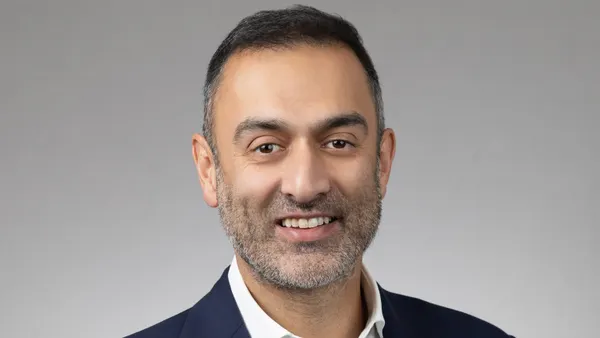Dive Brief:
- Intellia Therapeutics on Thursday released detailed Phase 2 results from a study of a gene-editing therapy for hereditary angioedema, drawing mixed reactions from investors and experts.
- The therapy, dubbed NTLA-2002, is based on the CRISPR gene editing technology that won a Nobel Prize in 2020. The treatment is designed to inactivate a gene involved in potentially life-threatening inflammatory attacks that plague patients with the disease.
- In the ongoing study of 27 patients, researchers found either a 75% or 77% reduction in attacks in the 16-week period after receiving therapy, depending on the dose received, Intellia said. And eight of the 11 patients in the higher dose arm were completely free of attacks after a one-time infusion. All of those patients continued to be attack-free with months of followup.
Dive Insight:
Shares of the company dropped 20% in early trading Thursday, likely because investors were looking for stronger data on the reduction of attacks, Stifel analyst Dae Gon Ha wrote in a note to clients. “However, we think fixating on the attack rate reduction misses the bigger picture, which is that NTLA-2002 is a potentially one-time curative therapy.”
An editorial that accompanied the data, published in The New England Journal of Medicine, agreed. “The durability of the therapeutic effect shows promise to last for the patients’ lifetimes,” wrote Kiran Musunuru, a professor at the University of Pennsylvania and co-founder of Verve Therapeutics. “We can be confident that NTLA-2002 is helping patients with hereditary angioedema.”
Investors had been waiting for the details on the study after Intellia announced positive top-line results in August. The latest findings build on early data that showed the therapy could reduce biological markers of the disease. Intellia said it’s actively screening patients for a Phase 3 trial that will use the higher dose.
The Intellia treatment relies on gene editing inside the body, unlike the first-ever approved gene-editing therapy, Casgevy. For that treatment, a patient’s stem cells are collected, edited and then reinfused to change the patient’s genetic code. The hereditary angioedema therapy follows Intellia’s work on a medicine for transthyretin amyloidosis that supported its “in vivo” approach.
Intellia still needs to prove its treatment can work in the Phase 3 trial. And the company will have to make the case to doctors that it’s worth taking a bet on a one-time, gene-editing therapy rather than the pills or injections that patients have come to depend on to control symptoms. Competitors in the field are also continuing to come up with new options on the more traditional path.
Intellia says its hereditary angioedema therapy is safe for patients and offers them the chance to avoid a lifetime of preventive therapy that may not totally relieve symptoms. That possibility is a “game changer,” according to Paula Busse, a researcher and doctor at Mount Sinai who sees patients with hereditary angioedema and was featured on an Intellia conference call with investors and analysts.













